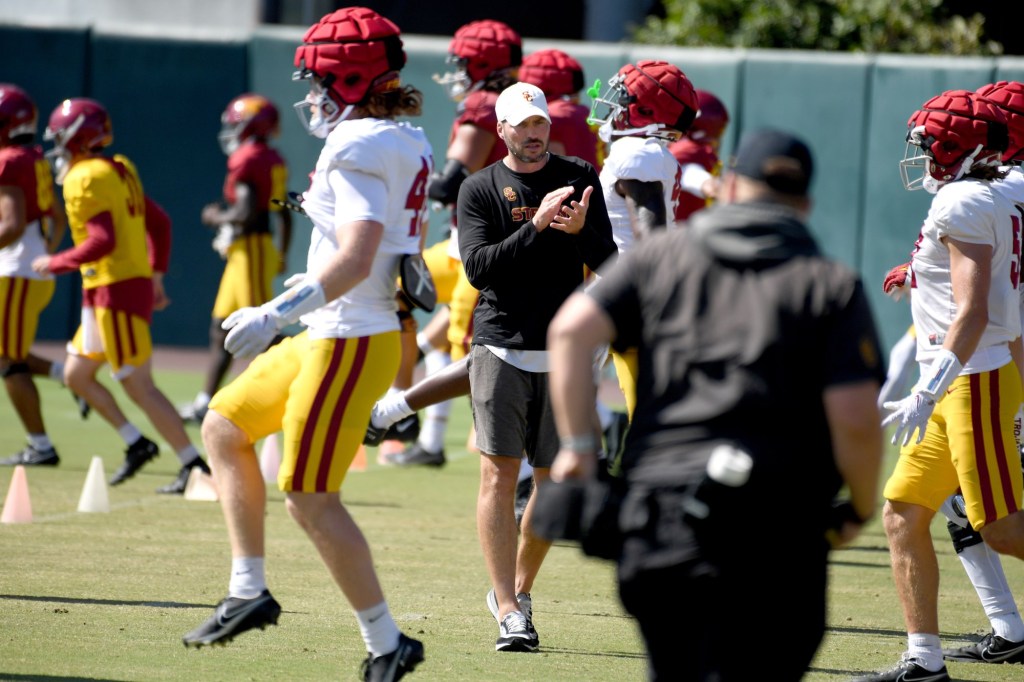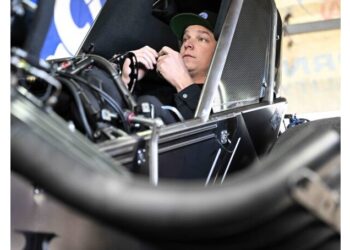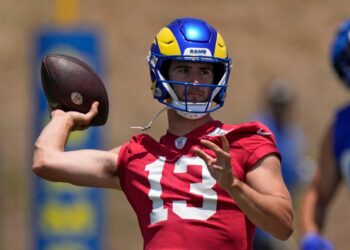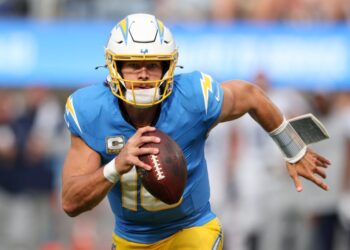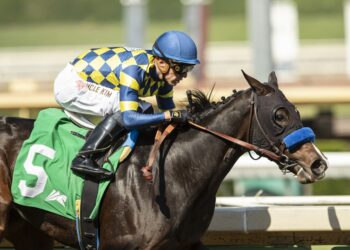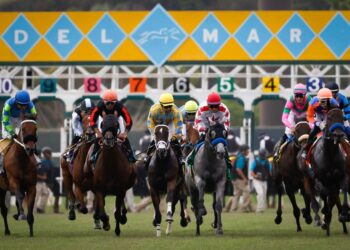LOS ANGELES — It frankly couldn’t have been a more boring testimony, the level of detail about USC football’s practice schedules undercutting the fact that this convoluted record could completely change the future of collegiate athletics.
For hours Thursday, inside of a tiny hearing room in the National Labor Relations Board offices in Los Angeles, USC football assistant athletic director Joseph Wood laid out some of the program’s most nitty and gritty elements on the stand. Monday film meetings. Tuesday and Wednesday practices. Friday walkthroughs. It seemed a strange detour on the slow and grueling procession toward the potential death of amateurism, this testimony over football players playing games of cards and Jenga on Friday night stays at the USC Hotel, Wood confirming that players weren’t allowed to have guests in their rooms for – ahem – “distractions.”
Each piece of information on this record, though, serves as a tiny domino in the NLRB’s fight to prove USC and the NCAA’s level of control over USC football athletes – and reclassify student-athletes as employees. Those dominoes could ultimately fall toward systematic change in never-more-pressing issues of compensation for collegiate athletes.
“There’s an air of inevitability,” said Jodi Balsam, a professor of clinical law at NYU’s Brooklyn Law School and the NFL’s former counsel for litigation.
Longstanding, foundational pillars of the NCAA’s evolution are being riddled and pockmarked with a long line of antitrust suits being fired its way, most recently in a highly publicized pushback against an investigation into Tennessee. After Sports Illustrated broke news Tuesday that NCAA was targeting Vols athletic programs over name, image and likeness infractions – most notably, a Tennessee NIL collective flying out freshman quarterback Nico Iamaleava for a visit – Tennessee Chancellor Donde Plowman penned a strongly worded letter to NCAA President Charlie Baker,…
Read the full article here

